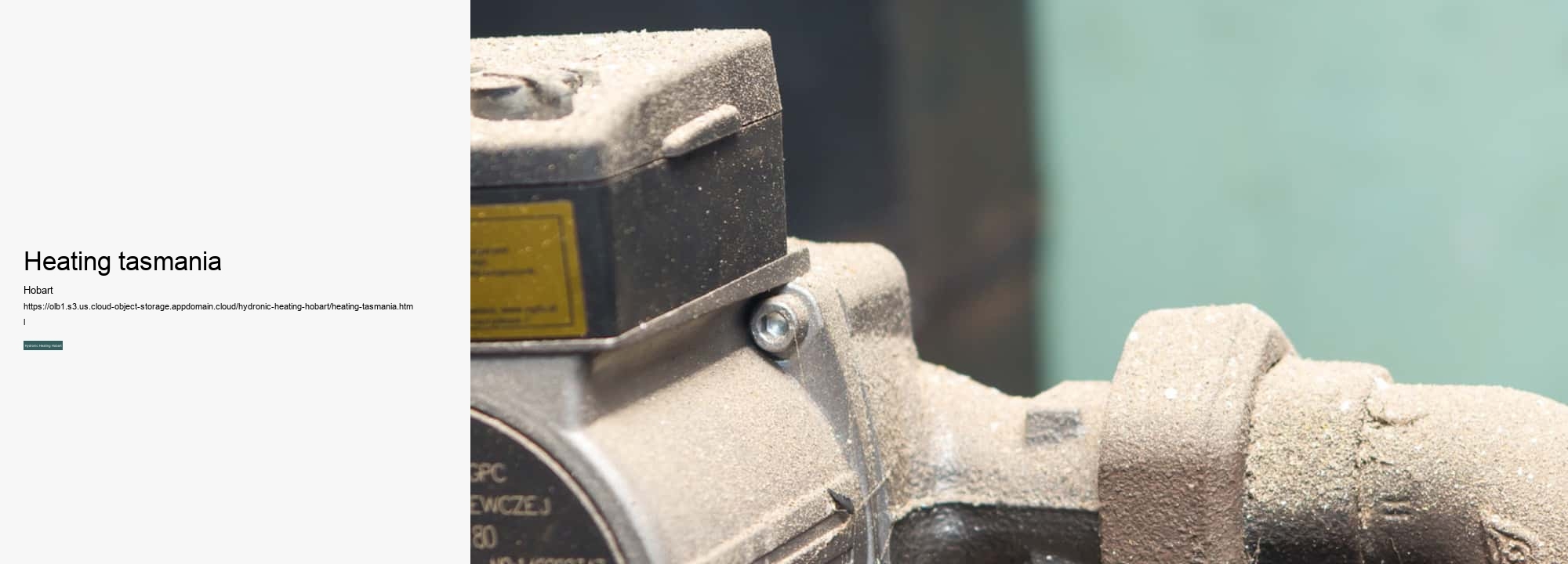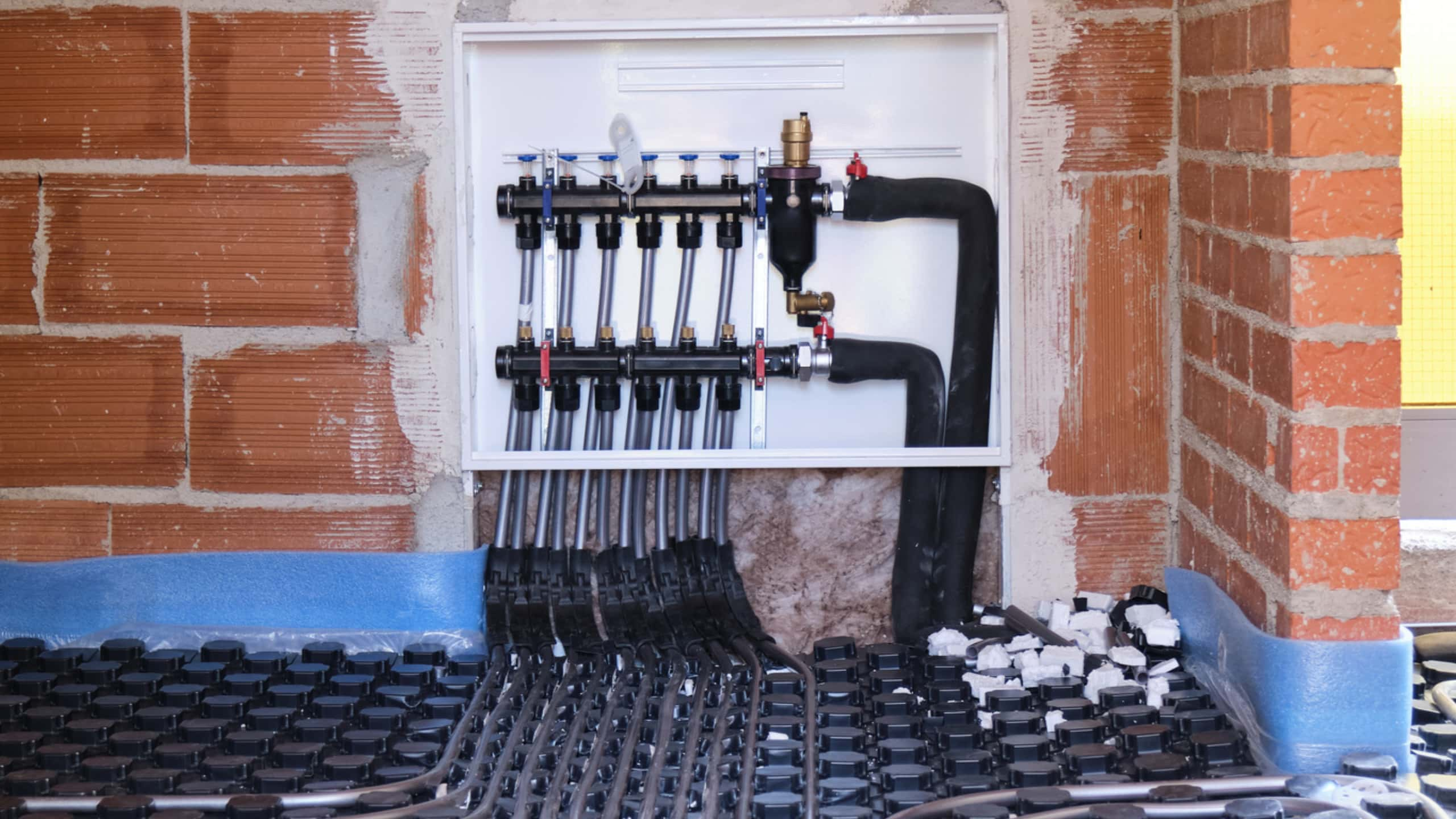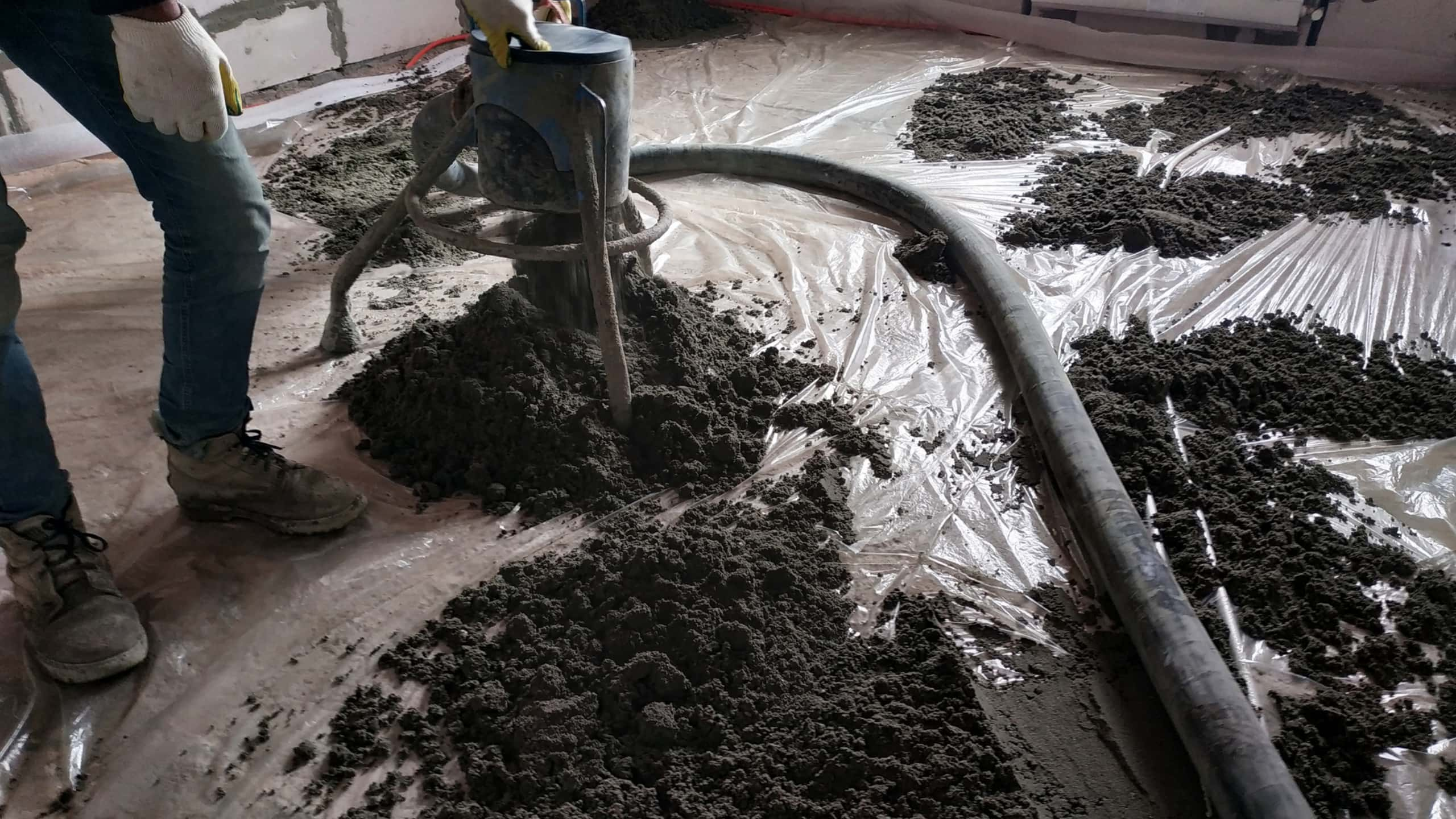

With continued research and development into this field of engineering, we may soon see even further improvements that will benefit us all even more! In addition to installation of a hydronic heating system, regular maintenance is essential for optimal performance. Firstly, consider where the boiler will be located - it should be placed in a part of the house that is well ventilated and away from any combustible materials.
Working with a professional in this area is essential to ensure the system works effectively and efficiently. So if you're looking for ways to beat winter chills and keep energy bills low this year, consider investing in a hydronic system.
It works by circulating hot water through a series of pipes that are installed beneath the floor, behind walls, or in the ceiling. Pipes connect all these components together, while expansion tanks act as pressure regulators and prevent pressure from building up too high inside the system.
Additionally, it can be installed quickly and easily into existing structures without major renovation work. By following these steps when installing a new heating system, homeowners can ensure they are making an informed decision that will deliver maximum efficiency at minimal cost over time. How to Enjoy Cleaner, Healthier Air with a Hydronic Heating SystemCleaner, air is something that everyone can appreciate. A properly maintained hydronic heating system is attractive to potential buyers due to its efficient functionality and low overhead costs for upkeep. Plus, you can customize the temperature in different rooms for maximum comfort.
By following these simple tips, you can enjoy warmth and comfort with hydronic heating all winter long! Finally, efficiency should always be taken into account when choosing a hydronic heating solution for your needs. This innovative system utilizes heated water to provide warmth throughout a home or business, eliminating the need for traditional radiators or air-conditioning systems. Furthermore, an analysis of the energy efficiency of the system should be conducted prior to use in order to determine whether or not it is cost-effective.
You'll also want to regularly maintain your equipment with tune-ups and filter changes so it keeps functioning as it should. There are various advanced technologies that can be utilized for this purpose, such as high-efficiency boilers, radiant floor heating systems, and solar thermal energy collectors. Next, assemble all the necessary components for the installation. The key to saving money on your heating bill lies in selecting an energy-efficient model for your home. Furthermore, since they don't burn any fuel, there is no risk of carbon monoxide poisoning either. As you can see, investing in a hydronic heating system has numerous advantages that go beyond just providing consistent heat throughout the colder seasons.
Plus the even distribution of warmth ensures you won't have any cold spots in your house either! Reap the Rewards with a Smart Investment in a Hydronic Heating SystemInvesting in a hydronic heating system can be a smart move for many homeowners.


With proper care, you can enjoy all the benefits of hydronic heating while saving money on energy costs in the long run. If any problems are detected during these inspections they should be addressed immediately in order to avoid costly repairs down the line. There are models available at various price points and it pays to shop around before settling on one option or another.
With such an effective method of keeping your home warm and reducing energy costs over time, you are likely to see an increase in property value too. Additionally, you should also consider installing smart thermostats which allow you to control temperatures more precisely so you're not overspending on energy costs unnecessarily.
Be aware that there may need to be some alterations made to existing walls or ceilings if pipe runs are different from your current setup. You should also look at energy star ratings for each model before making a final decision. This means that you don't have to worry about turning off the heater when you're not home - it will stay at a comfortable temperature all day long. It can be an efficient and cost-effective way to keep your home cosy all year round. By taking all these factors into account, homeowners can rest assured that their hydronic heating systems will provide years of reliable performance. Fortunately, there are several options available to meet these requirements.
Improved Air Quality: The lack of air ducts with hydronic systems also means there is no dust or allergens being circulated throughout your home, which helps improve indoor air quality. By using hot water rather than air to heat a home, these systems can provide a more consistent and comfortable temperature in the house. Different Components Used in Hydronic Heating SystemsHydronic heating systems are an efficient and cost-effective way to heat a home. The water is heated by either a boiler or solar panels and circulated throughout the house using pumps and valves. It works by passing heated water through pipes located throughout the home, which then radiates heat into the living spaces.
By taking these factors into account when selecting a boiler for your home's hydronic system, you can ensure you get the most suitable appliance for your specific needs while staying within your budget constraints. Lastly, it is an environmentally-friendly option as it does not produce any hazardous emissions and uses renewable sources such as solar power to generate heat. Finally, choose components carefully so that they work together efficiently; select quality valves, pumps and controls for optimum performance. These steps will ensure that your family has access to clean indoor air all year round! All these components work together in order to provide comfort and warmth for your home in a safe and energy-efficient manner.
By using hot water instead of air, you can enjoy more consistent temperatures and increased energy efficiency. Hydronic systems use less electricity than most traditional heating methods, meaning that over time your utility bills may decrease drastically. However, with the proper instructions and tools, it can be done quickly and efficiently. The boiler must be correctly sized for the home or office space that will be heated. If there is an obstruction, air bubbles may form, preventing proper circulation of water through the system.


Additionally, installing a hydronic heating system requires minimal maintenance since there are no moving parts or complex mechanical components involved. Proper sizing, placement, and insulation of the components are key factors for success. With careful attention paid throughout both installation and ongoing maintenance processes though it’s possible to enjoy effective warmth throughout any season without issue! First, consider the size of your home and its heating demands. For example, because these systems use heated liquid rather than forced air circulation they are quieter than traditional furnaces or heat pumps – perfect for those looking for a peaceful living environment! They rely on different components, such as pumps, boilers, radiators, pipes and expansion tanks, to distribute hot water throughout the building.
This includes the boiler, pipes, fittings, valves, pumps, radiators, thermostats and other related parts. Installation and Maintenance of Hydronic Heating SystemsInstalling and maintaining a hydronic heating system can be a daunting task. With a hydronic heating system, you can enjoy improved air quality and healthier living at home. How to Easily Install Hydronic Heating in Your HomeInstalling hydronic heating in your home doesn't have to be a difficult process. Additionally, make sure to clean or replace any filters on the unit every few months so as not to impede air flow or cause pressure build-up within the system.
In conclusion, installing a hydronic heating system in one's home can provide numerous advantages for both financial and environmental reasons. Hydronic heating is extremely versatile, allowing for temperature control at any individual area in the house. The unit is powered by hot water that circulates through pipes and radiators in order to heat your home. Firstly, it is extremely energy efficient and can save money on energy bills.
Once you have determined how much heat is required for your particular situation, you can begin to narrow down the selection of boilers available on the market. Cost Analysis of Hydronic Heating Versus Other Heating TypesCost analysis is an important factor when it comes to choosing the best heating system for your home. This type of system uses heated water that is circulated through pipes in order to deliver warmth to your living spaces.
How to Make Sure You Get Optimal Performance from Your Hydronic HeatingMaking sure you get the most out of your hydronic heating system can be a daunting task. Troubleshooting Common Issues with Hydronic Heating SystemsTroubleshooting common issues with hydronic heating systems can be a daunting task. To maximize efficiency and reduce energy costs, you may want to consider investing in an insulated ventilation ducting system or sealed combustion vents for any open flues or pipes leading outdoors.
